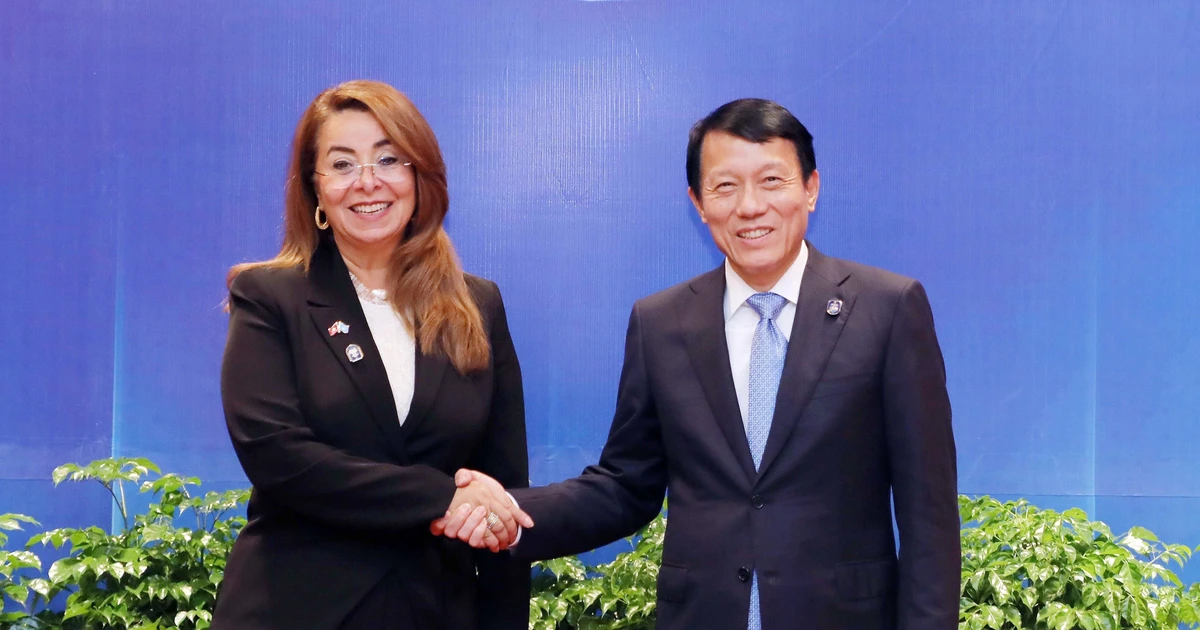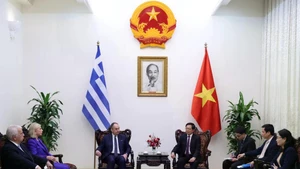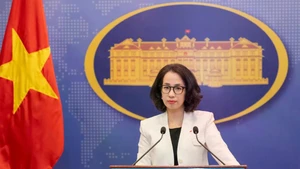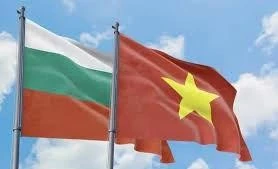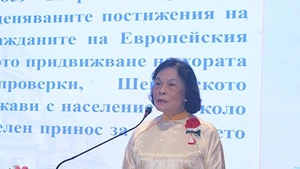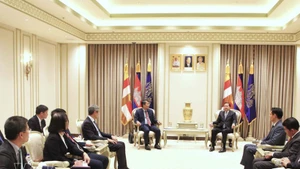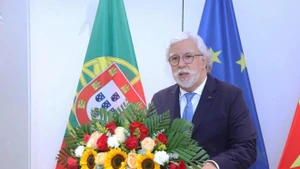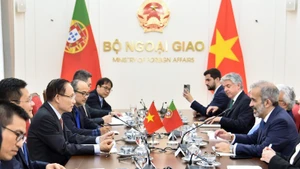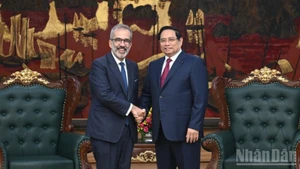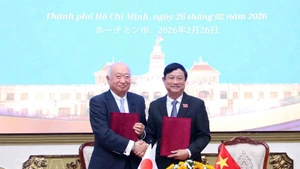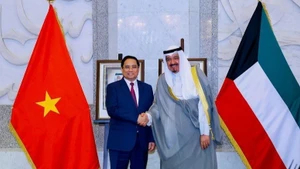Hosting a reception for Ghada Waly, UN Under Secretary-General and Executive Director of the UN Office on Drugs and Crime (UNODC), Quang extended congratulations on the successful signing ceremony of the Ha Noi Convention earlier in the day, calling the convention the international legal instrument on cyberspace governance with the broadest and most comprehensive influence to date.
He said its adoption by consensus after an expedited negotiation process reaffirmed the importance of multilateralism and the UN’s central role in promoting international cooperation under international law to effectively address global challenges.
Appreciating Waly and the UNODC for supporting and working closely with the Vietnamese Ministry of Public Security (MPS) to contribute to the signing ceremony's success, the minister welcomed the proposal to establish a UNODC regional centre on anti-cybercrime in Viet Nam, and described it as a step that will help elevate Viet Nam’s global role and standing and demonstrate its strong commitment to tackling non-traditional security threats.
Both sides agreed to continue promoting the existing cooperation mechanisms such as the Border Liaison Office (BLO) network to strengthen coordination against transnational crime. They will also expand collaboration in capacity building, equipment support, and personnel training in preventing money laundering, terrorist financing, violent extremism, drug trafficking, cybercrime, environmental crime, human trafficking, and corruption involving cross-border elements.
They discussed increasing high-level meetings and delegation exchanges between leaders of the ministry and UNODC, thereby bolstering ties priority areas. The MPS proposed that the UNODC expand its invitation programme for Vietnamese officials to attend international conferences and workshops, and organise study visits to share best practices in combating cybercrime, transnational crime, and other non-traditional security challenges.
Meeting with Australian Assistant Minister for Immigration and Assistant Minister for Foreign Affairs and Trade Matt Thistlethwaite the same day, Quang described the Ha Noi Convention as not only a “shield” protecting the world in cyberspace but also a symbol of cooperation, responsibility, and shared humanity in the digital era among UN member states, including Viet Nam and Australia.
Both sides agreed to step up mutual visits at all levels, share experience in cyberspace management and digital transformation, and enhance information sharing on transnational organised crime and cybersecurity issues.
The minister called on Australia to provide technical support and capacity-building assistance in counter-cybercrime for Viet Nam to foster a secure and trustworthy environment in the digital era.
Also on October 25, Quang hosted a reception for Morocco’s Minister of Justice Abdellatif Ouahbi. The two ministers agreed to intensify collaboration in law enforcement, information sharing, investigation, and search for criminals linked to the countries' citizens, especially those involved in transnational crime, drug trafficking, terrorism, high-tech crime, and human trafficking.
They also pledged to increase consultation and mutual support at international forums, coordinate in treaty negotiations and implementation, and contribute actively to multilateral mechanisms such as the UN and the International Criminal Police Organisation (INTERPOL).
The host expressed his hope that during the upcoming visit by a high-level delegation from the MPS to Morocco in November, the two sides will sign a memorandum of understanding on cooperation against human trafficking, creating a legal corridor for closer collaboration in transnational crime combat and other areas of shared concern.
In a separate meeting, Quang received Evgeny Valentinovich Kaspersky, CEO of Russia’s Kaspersky company, and praised the firm’s cooperation with Vietnamese partners during the past time. He said the signing of the Ha Noi Convention offered an opportunity for both sides to explore stronger cybersecurity partnerships and enhance response to increasingly complex cyber threats.
